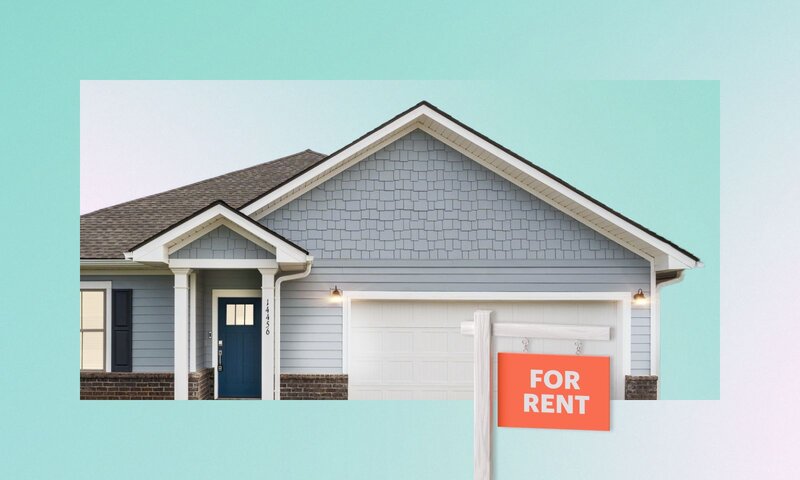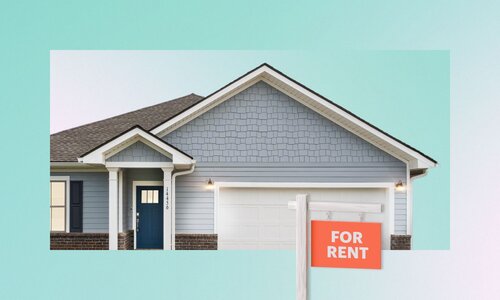Investing in real estate offers many different paths—from commercial buildings and multi-family apartments to private credit and raw land. Among them, single family residential (SFR) properties have become one of the most popular choices for long-term investors.
This article explores why SFRs stand out, the potential benefits and risks, and how Arrived makes investing in this asset class simple and accessible.
The case for residential real estate
A wider and more liquid market
Compared to commercial or industrial real estate, residential properties have a broader buyer and investor base. That often translates into:
- Easier buying and selling thanks to more potential buyers
- More comparable sales data for accurate valuations
- Greater transparency and price discovery
While real estate in general is less liquid than stocks or bonds, single-family homes also tend to have stronger liquidity than large commercial assets.
Income generation and stability
Residential rentals can provide a steady stream of income, even in different market cycles.
Some factors that contribute to this consistency include:
- Housing is a basic human need, creating persistent rental demand
- Tenant turnover is typically lower for single family homes than for apartments or retail properties
- The average renter stays in a single family home for around three years, providing stability in occupancy and income
- With careful market selection, properties can generate positive cash flow after expenses
Favorable supply-demand dynamics
The United States continues to experience a long-term housing shortage.
According to Freddie Mac, the U.S. faces an estimated 3.7 million-unit shortfall as of 2024, caused by years of underbuilding relative to population growth and household formation.
This ongoing imbalance between supply and demand supports strong fundamentals for both rental occupancy and home price appreciation.
At the same time, changing lifestyle preferences—such as remote work, family flexibility, and a desire for more space—continue to push many renters toward single family homes rather than apartments.
These combined factors have made the single family rental segment one of the most resilient and in-demand areas of U.S. real estate, even as broader market conditions fluctuate.
Why choose single family over other property types?
Single family homes occupy a unique position in the real estate landscape. They combine the accessibility and simplicity of residential investing with meaningful upside potential.
Here’s how SFR compares with other common asset classes:
Single family residential (SFR):
- Advantages: Lower entry costs, strong tenant demand, flexible resale options
- Tradeoffs: Local market exposure, smaller scale per property
Multi-family properties:
- Advantages: Economies of scale, diversified rent roll
- Tradeoffs: Higher capital requirements, more complex management
Commercial real estate:
- Advantages: Longer lease terms, potentially higher income per tenant
- Tradeoffs: Sensitive to business cycles, specialized tenant risk
Public REITs:
- Advantages: Liquidity, diversification, passive ownership
- Tradeoffs: Market correlation, limited control, management fees
Common single family investment strategies
1. Turnkey or tenant-ready properties
These homes are ready to rent immediately. They require minimal work, making them lower risk but with less potential for upside since the value-add has already been captured.
2. Light remodels or cosmetic upgrades
Often the most balanced strategy, these involve modest improvements — like new flooring, fixtures, or landscaping — to enhance rental potential and property value without major renovation risks or long timelines.
3. Full renovation or ground-up development
This can deliver higher potential returns but introduces greater uncertainty from construction costs, permitting, and market exposure.
For many investors, light remodels offer the best blend of value creation and risk management.
Understanding the risks
No investment is risk-free, and single family properties are no exception.
Here are a few key risks to consider — along with strategies to help mitigate them.
Vacancy and turnover risk
- Vacancies directly impact cash flow.
- Mitigation: choose strong rental markets, maintain the property proactively, and price rents competitively.
Maintenance and capital expenses
- Systems such as roofs, HVAC, and plumbing require upkeep.
- Mitigation: conduct thorough inspections, maintain reserves, and schedule preventive maintenance.
Market and valuation risk
- Local economies can shift, affecting home values and rents.
- Mitigation: diversify across markets, avoid over-leveraging, and model conservative assumptions.
Interest rate and financing risk
- Rising interest rates increase borrowing costs and can pressure valuations.
- Mitigation: favor fixed-rate loans and maintain moderate debt-to-equity ratios.
Regulatory and tax considerations
- Changes in landlord-tenant laws or property taxes can affect returns.
- Mitigation: invest in landlord-friendly states and review tax impacts annually with a qualified professional.
How Arrived makes it accessible
Historically, buying a single family residential property required significant capital, mortgage approval, and hands-on property management. Arrived removes those barriers, allowing anyone to:
- Buy fractional shares of rental homes for as little as $100
- Earn passive rental income without managing tenants or maintenance
- Diversify easily across cities and property types
- Leverage professional management and curated property selection
- Access transparent data on each property, and you overall portfolio performance


FAQ
Who can invest?
How much can I invest?
What type of products are available on Arrived?
Will I have any responsibilities for managing properties I invest in? If not, who is responsible?
What type of returns can I obtain?







